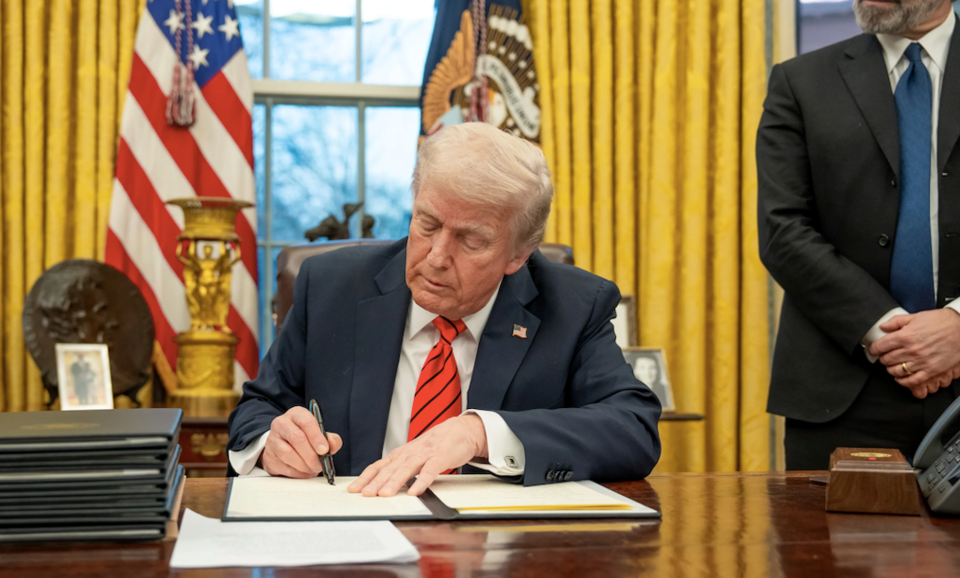President Donald Trump on Wednesday compounded tariffs on almost all goods coming into the United States, rearraning the global economic landscape.
Imports from China will be taxed 35%, while goods from all E.U. countries will now face a 20% tax, according to an executive order signed by Trump.
The president said he was placing elevated tariff rates on dozens of nations, while imposing a 10% baseline tax on imports from all countries. The African nation of Lesotho, which manufactures jeans for many U.S. brands, was hit with a 50% tax.
"I have declared a national emergency arising from conditions reflected in large and persistent annual U.S. goods trade deficits, which have grown by over 40% in the past five years alone, reaching $1.2 trillion in 2024," he said in the executive order. "This trade deficit reflects asymmetries in trade relationships that have contributed to the atrophy of domestic production capacity, especially that of the U.S. manufacturing and defense-industrial base."
Increased reliance on foreign products has compromised U.S. economic security by rendering U.S. supply chains vulnerable to geopolitical disruption and supply shocks, Trump said.
In addition, Trump said he would like to boost national manufacturing capabilities of automobiles, ships, pharmaceuticals, technology products, machine tools, fabricated metals, bio-manufacturing, batteries, microelectronics and defense and military goods.
The baseline 10% tax will start on April 5, while the higher rates on various nations will begin on April 9.
Meanwhile, Elon Musk and the Department of Government Efficiency (DOGE) may shut down sooner than expected, according to the Associated Press.
Musk recently suggested that he will be done with his work in the near future, while Trump told reporters this week that “at some point, he’s going to be going back” to running his companies. As far as the Department of Government Efficiency, Trump said “it will end.”
DOGE employees have been shifted to various federal agencies, which are supposed to take the lead on cutting costs. Musk presumably has a ticking clock on his tenure as he was hired as a special government employee, which means he can only work 130 days in a 365-day time period, the AP said.




